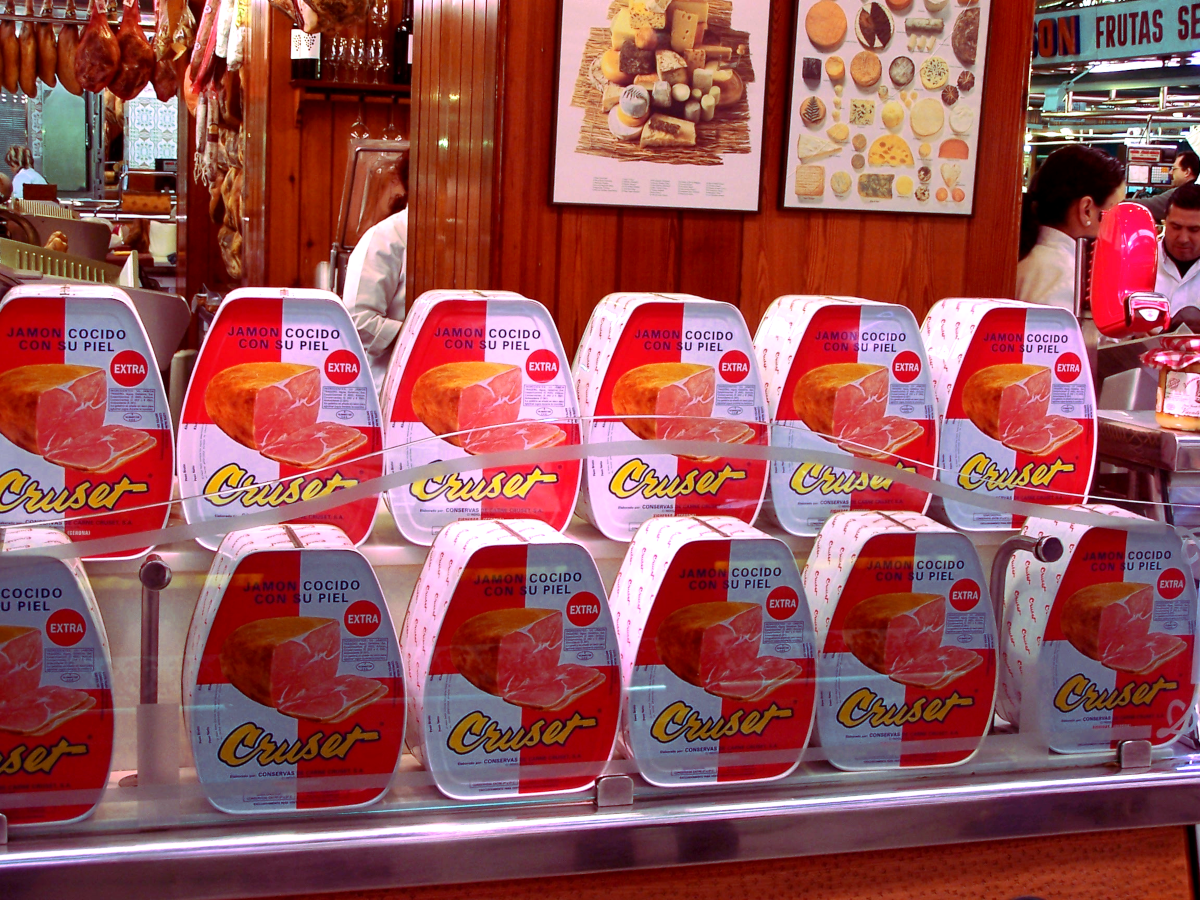(Part 3 of 6)
Thwack!
The boy is crying. The others are too, but this one more so, perhaps a result of the stick being cracked against his head.
“I’m sorry! I’m sorry!” He wipes away tears from his dirt-covered face. The filth is obvious, even in the pale light of the waxing crescent. He could be a chimney sweep in a Charles Dickens novel.
Thwack!
“I’m sorry, ma’am. I’m sorry.”
“And to think, you’d talk to me like that! I’m old enough to be your mother!”
Thwack!
“Please forgive us!” The apparent leader of the gang, the eldest, calls out: He’s eleven, possibly younger.
Thwack!
The smallest boy drops his rusty knife. It lands with a clank against the pavement.
“And littering!” And littering is something the wife finds intolerably annoying.
Thwack!
Louis is starting to wonder when, if ever, his wife’s arm will grow tired. He’d feel sorry for the boys—these semi-starved, would-be highwaymen—had they not been trying to kill him. As it stands, they can take their beating.
“Please, ma’am, sir, we’re hungry. That’s all. We’re hungry!”
Thwack! Thwack! Thwack!
All three of the boys are grabbing their heads, looking profoundly defeated.
The wife takes a breath, adjusts her windbreaker.
“So are we! So is everyone! I don’t steal. We don’t steal,” the wife nods towards Louis. “You don’t steal!”
“But we’re starving,” says the youngest boy, in a voice that would be high for a Chinese opera singer. The wife’s face softens, but only for a fraction of a second.
“Okay, you follow me.” Something shiny on the ground catches the moonlight. The wife squints. “And pick that up!” The boy is confused. The wife points down at the blade with her stick. “You pick it up!”
The boy scrambles for the knife, cleans it off, and timidly offers it to the wife. She grabs it, tucks it into her belt, and starts stomp-thumping forward at a brisk march. The little highwaymen stand idle.
The wife glances back, not breaking stride.
“Hurry up!”
And the boys fall in line behind Louis and his wife. Louis isn’t certain of what they’ll do with the boys. There’s nothing left in the house to eat, and nothing left to drink but a little tea.
***
The waves keep rolling, high and blue, and Jacques C. Phan—Phan Tan Dung to his family in the old country. Jack to his classmates—is no less lost than he was the day before, or the day before that, or the day before the day before that. How long he’s been lost isn’t entirely clear to Jack. The big electromagnetic event—Carrington II, as he’s christened it—must have been worse than anyone predicted, which is to say that it must have been many orders of magnitude bigger than the first Carrington Event. Everything had gone dark. No shortwave. No beacons. No GPS, which presently stands for Genuinely Pissed Sailors (millions of whom, like Jack, have only the vaguest notion of their location). Phan Tan Dung’s semester at sea is going far worse than planned.
The fighting hadn’t helped.
Panic kills, as does desperation. (A shorted-out pacemaker kills even faster: also a relevant point.) And when Captain Teach crumpled to the deck, his heart sent into overdrive, most of the student-crew did not handle matters well. The first response—a sensible one under most circumstances—was to attempt to radio for help. No luck. The next response was to try the emergency beacon. No luck. The third was to wait for a ship to pass. No luck. The last seemed odd. The RSV Moros–Astrape had carefully hewed to the major shipping lanes. Someone should have passed by sooner or later. But nothing. For days, the crew wandered the ship, its high, once-tidy deck growing dirty and disorganized. Jack, ever-energetic, upbeat to a fault, did what he could to keep morale high, but lost at sea was lost at sea, no matter how many Titanic jokes Second Mate Jack made.
The first fight started over food, much as one would expect. The strange thing: it happened within six days of the Event, hardly long enough for anyone to die of hunger, and there was enough water. Water was never a problem. The hand-powered reverse osmosis machine worked fine. The filters would have worn out eventually, but not for months, possibly years, and that’s assuming they had to supply a full crew. As it stood now, with a crew of one, Jack would die of hunger long before thirst even appeared on the horizon. The fight—the beginning of the end—seems absurd in retrospect:
“I’m hungry. I’m dying!” screams the rotund brunette as she grabs a canned ham.
“So am I!” the slightly larger redhead retorts as she grabs it back.
“But I have hypoglycemia!” Don’t we all!
“Oh yeah, I have diabetes!” Upping the ante, are we?
“Well, I’ve got a tumor and a thyroid disorder!” And hypoglycemia? Who let you on this ship, sicko?
The Neptunian Wrestlemania carries on for a while, and Jack does his best to keep a straight face. The combatants aren’t all that big, but pushing and shoving on deck isn’t likely to end well. Okay, gotta break this up . . .
“And I’ve got a headache!” Jack tries to smooth over the mood, with a little wink. “Two of them! But can’t we all just get along?”
“You’re not helping, Jack!” shrieks Red.
“Yeah, you’re not helping!”
At least they’ve got a common enemy. But no dice. They keep fighting. Someone should do something. The rest of the crew is impassive. Someone, it seems, is going to be Jack.
The women are fighting against the rails. Jack tries, gingerly, to pull them apart.
“Hey, get your hands off my tits! Rape!”
“What? I didn’t . . . ” and Jack lets go of the brunette, who does likewise with the ham.
Splash!
The redhead has the prize. But a canned ham makes a poor flotation device.
“Help! Help! Help!” Red is choking in the high waves, her waterlogged clothing making her efforts to keep her head above water that much more difficult. She’d do better if she released the ham, but she won’t: Hams, like krakens, should not be loosed into the depths haphazardly. The brunette is slightly appalled, but only for a moment: She’s steaming mad.
Jack looks around, wondering who’s going to throw out a life preserver. He keeps looking. He keeps waiting. He’s about to grab one and toss it into the water. Someone stops him, nodding gravely. Jack pulls free. Another crew member, this one larger, stronger than the first, stops him again: The big man glares. So that’s the way it’s going to be? The ship drifts away. Too many mouths to feed. Humanity dies with a whimper. They didn’t eat her. There’s something to be said for that.
Pity that final bit of decency didn’t last.
***
Bang! Bang! Bang!
“What the . . . ” Elmer’s awake, and he feels as though he’s about to have a heart attack. He might, not that it would bother him all that much at this point: He considers every day past his four score and ten as bonus time, and he’s been burning through his bonus for years. Luck has to run out sooner or later. Maybe that’s Death himself. Naturally, Death would be a morning person. Bastards usually are.
Elmer grabs his chest. Hmm, alive?!
He rises from his recliner—tries to rise from his recliner—it’s not easy some days, but not quite as bad as trying to get out of bed, which is why he doesn’t sleep in one. With much grunting, Elmer pulls himself up. He could open the blackout curtains covering the office windows, but why? Late nights of pounding away on the Vibroplex—forwarding message after message, sending a few of his own, and copying down more—were hard on an old man. So he dozes until afternoon. This makes running the farm harder, but at least Elmer doesn’t have any cows to milk. Barring another apocalyptic occurrence, Elmer would be returning to his recliner. Even that probably wouldn’t keep him up. If you’re going to die, at least die well-rested.
Bang! Bang! Bang!
“Hello! Are you home? Early birds have eaten the worms!”
I know that voice. Damn it, why couldn’t it have been Death?
Elmer tries to call out—Kim!—but he’s too hoarse, so he lumbers out of his office and towards the front door.
Bang! Bang! Bang!
“I’m coming! I’m coming!” Cough! “Hold your horses, lady.” He grabs a cigar from the table.
“Hello! Where are you? I have come bearing gifts!” The woman’s voice doesn’t just carry through the door, it sing-songs and saws its way through it.
Where is Kim? Do I have to do everything around here? Elmer catches sight of the tent—it’s still zipped shut. Will she only get out to cook?But Elmer doesn’t have much time to turn this question around in his mind. He hears giggling and then a theatrical shush! from outside. He takes a breath. He throws back the deadbolt and twists the doorknob.
“Hello, old man!” Old man sounds almost endearing when she says it.
Elmer catches the woman’s smiling face—somewhere a canary has gone missing—and then he looks down. Three boys, conspicuously scrubbed, their garments freshly patched and their heads bandaged, are lined up in front of the woman. Elmer groans.
“Workers for you!” And mouths to feed! “They are very useful!” Yeah, I bet.
“Uh huh, I can see that, lady.” Where will I even . . . and Elmer’s train of thought is derailed as the woman pushes the boys past him. They line up against the wall, smartly: They’ve been practicing.
“Now,” the lady—Louis’s wife—pauses, “about my payment.”
“Payment?” Elmer’s trying to choke down the shock. In an earlier era, he is what they would have called triggered, “You want payment? For what?”
“Farmhands! You are lucky to have such a skillful agent!” and without skipping a beat, the lady turns towards the guest room and yells, “Kim, you start breakfast. Five plus you!” Kim is out of the tent in a second. “And extra for the old man!” Kim all but bolts towards the kitchen. That was quick.
“I don’t need any farmhands!” Cough! Hack! “What are you trying to pull, lady?”
“You sound sick,” the lady’s eyes narrow. Wheels are turning in her head, and quickly.
“You are too old to fish!”
“Yeah, so?”
“You are too old to farm. You need help.”
“Says who?”
“Says your recruiter!” Nope! Not this time! Elmer isn’t going to let the woman dump anyone else on him. Her jaw sets, but the change is barely perceptible—she’s not giving up that easily.
“Do you really want to let these boys starve? Do you?” She bashes the youngest one’s shin. Tears well up in his eyes. “Look! He’s injured!”
“Because you . . . ” Elmer’s starting to sputter. His pulse is rising. Blood probably won’t shoot out of his eyes, but it’s difficult to say, “Because you kicked him, woman!”
“Your point being?” She seems genuinely curious, as though Elmer had just uttered a non-sequitur—yesterday’s lottery numbers and the name of his favorite hockey team, perhaps.
“My point being is that . . . they . . . aren’t . . . my . . . problem!” Elmer’s about to say more, when he catches the delicate odor of pho wafting out of the kitchen. He pauses. Louis’s wife sees a window open.
“Okay, okay. But why not have breakfast first? Do you really want to make a big decision on an empty stomach?” She winks. “Come on, old man! You look hungry.”
At least we agree on something.
Clank! Clank!
Elmer hears Kim setting the table. The junior highwaymen /candidate farmhands, having already made their way to the other room, murmur amongst themselves.
“You boys eat slowly!” Louis’s wife calls out to them. “You don’t want to make yourselves sick!” She gestures somewhat grandly in the direction of the noise: After you, gramps!
Elmer growls, chewing on his unlit cigar, before shambling towards the smell of food, the woman following behind, her thumping steps gently encouraging him forward.
Hell, I’m too nice for my own good.
Return next week for Part IV, or buy Foresight (and Other Stories) today.


The Rules
The Rules is a philosophy and self-inquiry text designed to help readers develop mental discipline and set life goals. It does this by way of guided readings and open-ended questions that facilitate the rational and systematic application of each Rule.
Put another way: The Rules is a book designed to help men survive and thrive in the West.
Foresight (And Other Stories)
Four tales across time and distance. Always satirical and frequently dark, this collection considers the breadth of isolation and the depth of connection.
Brant von Goble is a writer, editor, publisher, researcher, teacher, musician, juggler, and amateur radio operator.
He is the author of several books and articles of both the academic and non-academic variety. He owns and operates the book publishing company Loosey Goosey Press.









